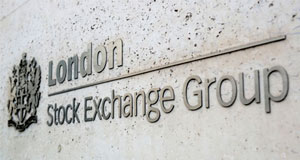 Chancellor Osborne is expected to deliver his budget speech to Parliament today at 12:30 GMT. Clearly, the situation has changed and not for the best, since he announced fiscal austerity measures after the Tories came fully into power last May. Already in November, Mr. Osborne was forced to abandon the idea of cutting tax credits from working families, worth £4.4bn. He would definitely need to concede on more measures in the future, given that macroeconomic conditions in the UK have deteriorated along with the global rout in financial markets, but also the significant impact of lower oil and commodity prices on the UK’s economic fundamentals.
Chancellor Osborne is expected to deliver his budget speech to Parliament today at 12:30 GMT. Clearly, the situation has changed and not for the best, since he announced fiscal austerity measures after the Tories came fully into power last May. Already in November, Mr. Osborne was forced to abandon the idea of cutting tax credits from working families, worth £4.4bn. He would definitely need to concede on more measures in the future, given that macroeconomic conditions in the UK have deteriorated along with the global rout in financial markets, but also the significant impact of lower oil and commodity prices on the UK’s economic fundamentals.
As a cherry on top, the UK is now facing a potential exit from the European Union and pending uncertainties on the political platform. Of course, it is very difficult to evaluate the implications of a possible Brexit outcome; nevertheless the risks are here to stay until the vote is over, on June 23rd. Depending on the outcome, the UK’s government may suffer additional costs that have not been factored into the original plans.
Good news – if we could name it so – is that the Bank of England will certainly not move an inch before the Brexit referendum. Governor Mark Carney made it clear that the BoE will inject additional liquidity into the referendum, yet will not act in favour or against any possible outcome. Given that the BoE is already sitting at the bottom of its rate policy with the bank rate fixed at the historical low of 0.50%, the chances of a rate hike seem almost impossible, even if the Fed sounds more hawkish than desired at today’s FOMC meeting.
This is the reason the Bank of England is expected to sit on its hands at Thursday’s MPC meeting. A rapid glance on the sovereign market suggests a light pricing in favour of a rate cut. These speculations should be taken with great caution as they are nothing, but implied probabilities extracted from the sovereign bond prices. Given the decent distortion in sovereign bond activity across the globe, thanks to massive central bank interventions, the information we extract from such instruments have their limits. In this respect, it is worth recalling that Mark Carney said the BoE’s next move is going to be a rate hike.
The pound has lost against all of its G10 peers over the past month as the market increasingly factors in Brexit risks. Should Osborne manage to sweeten the sour austerity package, then we could certainly look for the pound cheapening below 1.40 mark in the coming days. Light option barriers are hanging at 1.4135/1.4140 for today’s expiry. The euro-pound could then gather enough momentum to fight back the 0.80 offers.
FTSE gains on oil. LSE merges with Deutsche Boerse.
The FTSE started the day upbeat. Anglo American (+2.86%), Glencore (+2.63%), BP (+2.08%), BHP Billiton (+1.46%) and Royal Dutch Shell (+1.39%) took their seats among the leading gainers at the London open.
Oil prices recovered overnight, the WTI consolidates above the 50-dma ($36.50) after two days of sell-off following Iran’s announcement to push production to 4 million barrel a day. Commodity markets are rather mixed with nickel futures slightly cheaper by 0.53% on the session, copper futures are flat.
The most expected news since several weeks finally came in: LSE and Deutsche Boerse agreed to merge. LSE shareholders will receive 45.6%, while Deutsche Boerse stake holders will get the remaining 54.4%. It will create a ‘European trading powerhouse to better compete against U.S. rivals encroaching on their turf’ commented Reuters. After hitting a new record high in London, 2960p, LSE stocks eased 2900p.
Source: www.lcg.com













